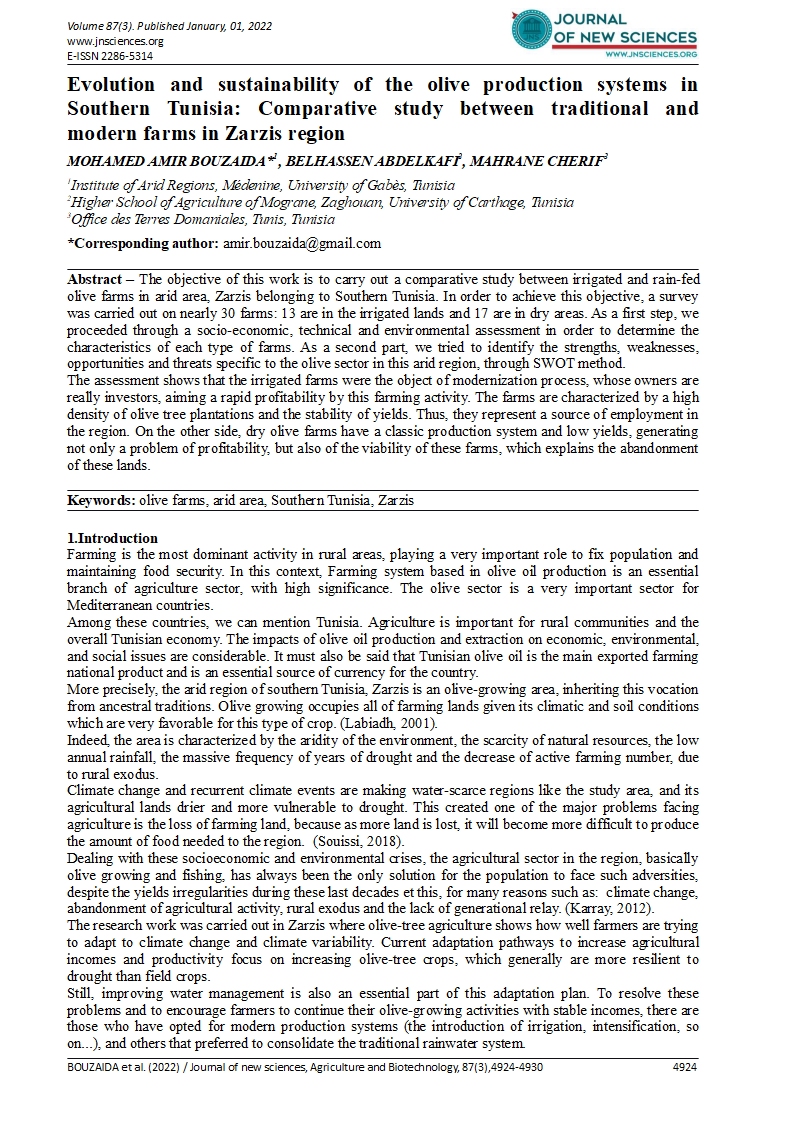

- Category: Volume 87
- Hits: 1631
Evolution and sustainability of the olive production systems in Southern Tunisia: Comparative study between traditional and modern farms in Zarzis region
MOHAMED AMIR BOUZAIDA1
BELHASSEN ABDELKAFI2
MAHRANE CHERIF3
1Institute of Arid Regions, Médenine, University of Gabès, Tunisia
2Higher School of Agriculture of Mograne, Zaghouan, University of Carthage, Tunisia
3Office des Terres Domaniales, Tunis, Tunisia
DOI: https://doi.org/10.55416/sunb.jns01.2201.08703
Abstract – The objective of this work is to carry out a comparative study between irrigated and rain-fed olive farms in arid area, Zarzis belonging to Southern Tunisia. In order to achieve this objective, a survey was carried out on nearly 30 farms: 13 are in the irrigated lands and 17 are in dry areas. As a first step, we proceeded through a socio-economic, technical and environmental assessment in order to determine the characteristics of each type of farms. As a second part, we tried to identify the strengths, weaknesses, opportunities and threats specific to the olive sector in this arid region, through SWOT method. The assessment shows that the irrigated farms were the object of modernization process, whose owners are really investors, aiming a rapid profitability by this farming activity. The farms are characterized by a high density of olive tree plantations and the stability of yields. Thus, they represent a source of employment in the region. On the other side, dry olive farms have a classic production system and low yields, generating not only a problem of profitability, but also of the viability of these farms, which explains the abandonment of these lands.
Keywords: olive farms, arid area, Southern Tunisia, Zarzis

